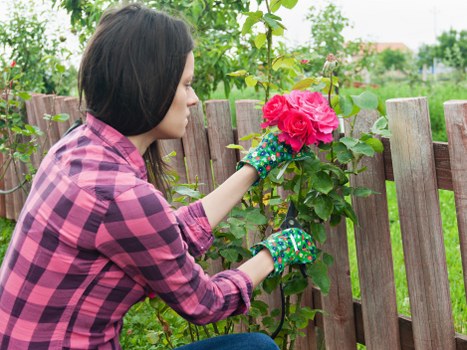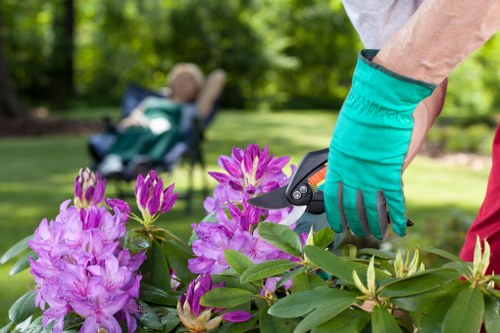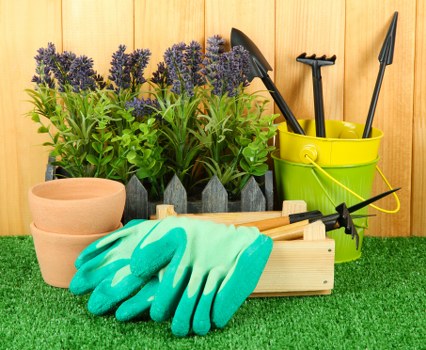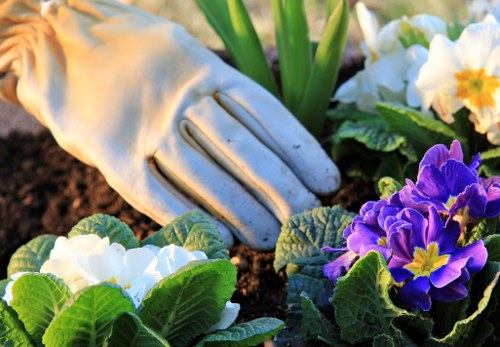Hard Floor Cleaning in Oven Cleaner: Effective Techniques for Sparkling Floors

Maintaining clean hard floors is essential for both aesthetic appeal and hygiene in any home or commercial space. While there are numerous cleaning solutions available, one unconventional yet effective method involves using oven cleaner. This article explores the benefits, techniques, and precautions of using oven cleaner for hard floor cleaning.
Hard floors, such as tile, laminate, hardwood, and vinyl, require regular maintenance to preserve their appearance and longevity. Traditional cleaning products often contain strong chemicals that can be harsh on surfaces and pose health risks. Oven cleaners, known for their powerful degreasing properties, offer an alternative approach to tackling stubborn stains and grime.
Before delving into the specifics, it's crucial to understand the compatibility of oven cleaners with different types of hard floors. Not all surfaces can withstand the potency of oven cleaning agents, so selecting the right product and method is paramount for achieving optimal results without causing damage.
The Benefits of Using Oven Cleaner for Hard Floor Cleaning

Oven cleaners are formulated to remove baked-on grease, food residues, and tough stains from surfaces that can endure high-chemical concentrations. This makes them a viable option for cleaning certain types of hard floors when used correctly.
Powerful Degreasing Action: Oven cleaners break down stubborn grease and oil, making it easier to scrub away grime from hard floor surfaces. This is particularly beneficial for kitchens and dining areas where spills are frequent.
Cost-Effective Solution: Compared to specialized floor cleaning products, oven cleaners are often more affordable and readily available, providing a budget-friendly alternative for maintaining clean floors.
Eco-Friendly Considerations

While oven cleaners are effective, it's important to consider their environmental impact. Many oven cleaning products contain volatile organic compounds (VOCs) that can contribute to air pollution and pose health risks. Opting for eco-friendly oven cleaners or using them sparingly can mitigate these concerns.
Additionally, proper ventilation is essential when using oven cleaners to minimize inhalation of harmful fumes. Using protective gear, such as gloves and masks, can further enhance safety during the cleaning process.
Incorporating green cleaning practices not only benefits the environment but also ensures a safer living or working space for occupants.
Preparing Your Space for Cleaning

Before applying oven cleaner to hard floors, thorough preparation is necessary to achieve the best results and prevent accidental damage.
Remove Debris: Sweep or vacuum the floor to eliminate loose dirt, dust, and debris. This prevents scratching the floor surface during the cleaning process.
Test a Small Area: Apply a small amount of oven cleaner to an inconspicuous area of the floor to ensure compatibility. Wait for the recommended time and check for any adverse reactions, such as discoloration or surface degradation.
Gathering Necessary Supplies

Having the right tools and materials on hand simplifies the cleaning process and ensures efficiency.
- Oven Cleaner: Choose a product that is suitable for your specific floor type.
- Protective Gear: Wear gloves, safety goggles, and masks to protect against chemical exposure.
- Scrubbing Tools: Use non-abrasive scrub brushes or sponges to avoid scratching the floor.
- Buckets and Water: For rinsing and diluting the cleaner if necessary.
- Ventilation Equipment: Ensure adequate airflow to dissipate fumes.
Step-by-Step Guide to Cleaning Hard Floors with Oven Cleaner

Step 1: Ventilation
Open windows and doors to ensure proper ventilation. Using oven cleaner in a well-ventilated area reduces the buildup of harmful fumes.
Step 2: Application
Spray the oven cleaner evenly across the floor surface, focusing on areas with heavy stains or grease buildup. Avoid oversaturating the floor to prevent excessive residue.
Step 3: Waiting Period
Allow the oven cleaner to sit for the duration specified on the product label. This enables the chemicals to break down stubborn grime effectively.
Scrubbing and Removal

After the waiting period, use a non-abrasive scrub brush or sponge to gently scrub the floor surface. Pay special attention to heavily soiled areas to ensure thorough cleaning.
Once satisfied with the scrubbing, rinse the floor with clean water to remove any residual cleaner. It's essential to eliminate all traces of the oven cleaner to maintain a safe and clean environment.
Dry the floor using clean towels or allow it to air dry completely before reintroducing furniture or foot traffic.
Safety Precautions When Using Oven Cleaner

Oven cleaners contain potent chemicals that can pose health risks if not used properly. Adhering to safety precautions ensures a safe and effective cleaning experience.
Protective Gear: Always wear gloves and safety goggles to prevent skin and eye irritation. Consider using masks to avoid inhaling fumes.
Avoid Mixing Chemicals: Never combine oven cleaner with other cleaning agents, especially bleach or ammonia, as this can produce toxic gases.
Proper Storage and Disposal

Store oven cleaners in their original containers, away from children and pets. Ensure the lids are tightly closed to prevent accidental spills or exposures.
Dispose of any unused or expired oven cleaner according to local regulations. Do not pour unused chemicals down the drain or into the environment.
Consider alternatives or eco-friendly options to minimize environmental impact and enhance safety.
Alternative Methods for Hard Floor Cleaning

If oven cleaner is not suitable for your hard floor type or if you prefer a less chemical-intensive method, several alternatives can achieve similar results.
- Vinegar and Water Solution: A mixture of vinegar and water effectively cleans and disinfects hard floors without harsh chemicals.
- Baking Soda: Sprinkling baking soda on stains and scrubbing with a damp cloth can remove grime and deodorize the area.
- Steam Cleaning: Steam cleaners use high-temperature steam to sanitize and clean hard floors without the need for chemical cleaners.
Choosing the Right Cleaning Method

Selecting the appropriate cleaning method depends on the type of hard floor, the nature of the stains, and personal preferences regarding chemical use.
For example, hardwood floors may require gentler cleaning solutions to prevent damage, while tile floors can withstand more robust cleaning agents like oven cleaners.
Assessing the specific needs of your flooring and weighing the pros and cons of each method will help determine the best approach for maintaining clean and beautiful hard floors.
Maintenance Tips for Clean Hard Floors

Regular maintenance ensures that hard floors remain clean and free from stains, reducing the need for intensive cleaning sessions.
- Daily Sweeping or Vacuuming: Remove loose dirt and debris to prevent scratches and buildup.
- Immediate Spill Cleanup: Address spills promptly to avoid stains and damage.
- Use Protective Pads: Place pads under furniture legs to prevent scratches and dents.
- Regular Deep Cleaning: Schedule periodic deep cleaning sessions using appropriate methods for your floor type.
Prolonging Floor Longevity

Implementing these maintenance practices not only keeps floors looking pristine but also extends their lifespan. Proper care reduces wear and tear, maintaining the integrity of the flooring material over time.
Investing in high-quality floor finishes and regularly resealing as needed can provide an additional layer of protection against stains and damage.
By adopting a consistent cleaning and maintenance routine, the beauty and functionality of hard floors can be preserved for years to come.
Common Mistakes to Avoid

Even with the best intentions, certain mistakes can undermine your hard floor cleaning efforts. Being aware of these pitfalls ensures more effective and safer cleaning.
- Overusing Cleaner: Applying too much oven cleaner can leave residue, making floors slippery and attracting more dirt.
- Using Abrasive Tools: Scrubbing with harsh brushes or scouring pads can scratch and damage floor surfaces.
- Neglecting Ventilation: Failing to ventilate the area can lead to inhalation of harmful fumes, posing health risks.
- Ignoring Manufacturer Instructions: Not following the recommended guidelines for oven cleaner application can result in ineffective cleaning or damage.
- Mixing Cleaning Products: Combining oven cleaner with other chemicals can produce toxic reactions.
Ensuring Effective Cleaning

By avoiding these common mistakes, you can enhance the effectiveness of your hard floor cleaning regimen. Proper application, tool selection, and adherence to safety measures contribute to achieving spotless and well-maintained floors.
Additionally, educating yourself about the specific needs of your flooring type empowers you to make informed decisions regarding cleaning methods and products.
Consistent and mindful cleaning practices ensure that hard floors remain a beautiful feature of your space.
When to Seek Professional Help

While DIY cleaning methods, including using oven cleaner, can be effective for regular maintenance, certain situations warrant professional intervention.
Severe Stains or Damage: Deep-seated stains or significant damage to floor surfaces may require specialized treatments that professionals can provide.
Extensive Cleaning Jobs: Large areas or heavy grime buildup can be time-consuming and labor-intensive, making professional services a more efficient solution.
Benefits of Professional Cleaning

Professional floor cleaning services offer expertise, specialized equipment, and tailored solutions that ensure thorough and effective cleaning.
They are equipped to handle various floor types and can advise on the best practices for maintenance and preservation.
Moreover, professionals can address issues like floor refinishing, repairs, and sealing, enhancing the overall longevity and appearance of your hard floors.
Conclusion

Hard floor cleaning is a vital aspect of maintaining a clean, healthy, and aesthetically pleasing environment. Utilizing oven cleaner can be an effective method for tackling stubborn stains and grease, provided the correct techniques and safety measures are followed.
However, it's essential to assess the suitability of oven cleaner for your specific floor type and consider alternative methods that align with your preferences and environmental considerations.
By combining proper preparation, effective cleaning strategies, and regular maintenance, you can ensure that your hard floors remain in pristine condition for years to come.
Take Action Today

Ready to revitalize your hard floors? Contact us today to learn more about our professional cleaning services and discover the best solutions tailored to your needs.
Book your service now and experience the difference that expert hard floor cleaning can make in enhancing the beauty and hygiene of your space.